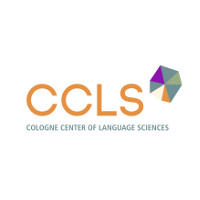Profile Phonetics
Phonetics
What is the field of study about?
The study of phonetics is concerned with articulatory, acoustic and auditory properties of sound systems, sound structure (phonology) as well as the intonation of spoken language, both on a single-language basis and cross-linguistically. Students gain insights into communicative functions of linguistic phenomena and learn to discuss these by means of descriptive and experimental approaches.
During studies, students acquire competence in phonetic-phonological analysis and language modelling, with a special focus being given to empirical investigations carried out in the context of seminars. Students also learn to interpret complex experimental phonetic data (as arising from, e.g., intonation research and cinematics) for the purpose of advancing phonological theory.
Master’s theses are typically empirical/experimental in scope, allowing students to undertake their own investigations. The Institute laboratory is fully equipped for exploring both articulatory and acoustic issues.
Contents of the Phonetics Specialization Module
Students acquire in-depth knowledge of the theory and practice of current research in laboratory phonology and examine phonological questions by means of experimental phonetic methods.
The module is concerned with developing the theory and practice of prosodic analysis and the articulatory modelling of spoken language as well as interactions between the two. The most important prosodic models are examined and their applicability to different languages tested.
GToBI (German Tones and Break Indices), the model of German intonation currently used to investigate the phonological structure of German, represents a further highlight of the module.
Articulation studies develops students’ knowledge of articulatory modelling and its bearing on the acoustic speech signal. Interactions of tone and segments and their dynamic modelling is also treated.
Formulating a research hypothesis in prosody and articulation, as well as developing appropriate measuring criteria and annotation techniques on the basis of current research literature, is a major part of writing a term paper in phonetics.
The project seminar “Laboratory Phonology” enables students to plan, execute and evaluate small-scale production and/or perception experiments based on a variety of phonetic and phonological issues (including considering workload, viability, execution, time management and costs). Students learn to plan and conduct an experiment using medical and acoustic technology and to evaluate the data collected with regard to its modelling under prosodic and articulatory aspects.
The results of the project seminar are then presented in the form of a presentation in the (Phonetics) colloquium. In addition to a clear structuring of the working hypothesis, the methods and results, as well as the implications of the results for the field as a whole, the audiovisual presentation of the laboratory results, as contributing to a critical discussion, is emphasized.
What does the Cologne Department of Phonetics do?
Intonation and prosodic structure
Intonation generally denotes the melody of human speech. Taken more broadly, the term also covers other phenomena, such as accentuation, sub-division of utterances by means of pauses, as well as speech rhythm and tempo. Prosodic structure is the division of utterances into units such as syllables and feet, up to the phrase level.
Experimental Phonology
Experimental (or Laboratory) Phonology is the experimental exploration of phonological queries, with the interplay of functional-phonological hypothesizing and practical phonetics being particularly stressed. A variety of different production and perception experiments are performed.
Articulatory Modelling
Articulatory phonetics and phonology deals with the measurement, analysis and modelling of spoken language, with the articulatory gesture as a unit of movement forming the phonological basic unit. Gestural coordination enables us to map phonological processes. In Cologne, our focus is on the interaction of prosody and articulation, as reflected by our research into prominence markers (focus, givenness), speech motor skills in syllable production or intonation-to-text synchronization.
You can find an overview of all the Institute’s current research projects here.
What are the prerequisites?
Students willing to specialize in phonetics should have prior basic knowledge of acoustic phonetics. (if necessary, students can acquaint themselves with or review the matter in the seminar “Laboratory Phonology – Acoustics” offered in the BA programme “Linguistik und Phonetik”.)
What is the field of study not about?
We are NOT primarily concerned with the following areas, though they can be topics of individual seminars:
- Clinical Phonetics & speech therapy: symptoms, diagnostics and therapy of speech, language and voice impediments and disorders
- Forensic Phonetics: systematic analysis of individual speaker characteristics in the context of criminal investigations
- Rhetoric/ public speaking: scientific or practical aspects of convincing, effective and/or aesthetic spoken communication
- German as a foreign language: didactic or practical aspects of German for speakers or learners for whom German is not a native language
Which modules is the field of study principally involved in?
AM 1-3, AM 5, SM 1H, SM 2B
Who can I contact?
Christine Röhr
Contact: christine.roehr(at)uni-koeln.de
Homepage: http://ifl.phil-fak.uni-koeln.de/croehr.html
Doris Mücke
Contact: doris.muecke(at)uni-koeln.de
